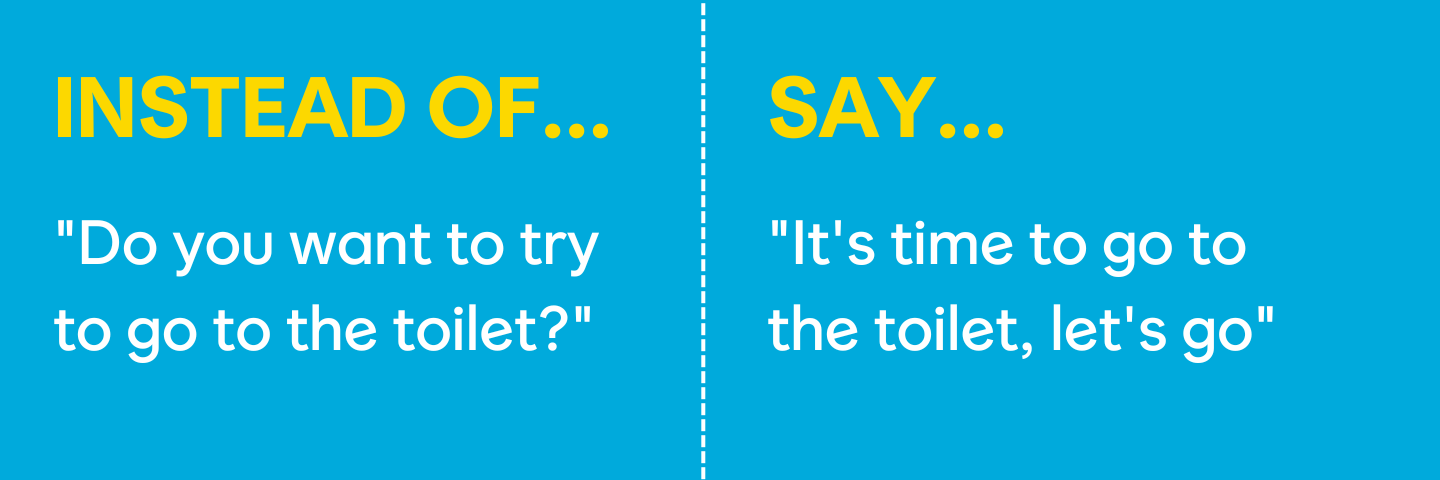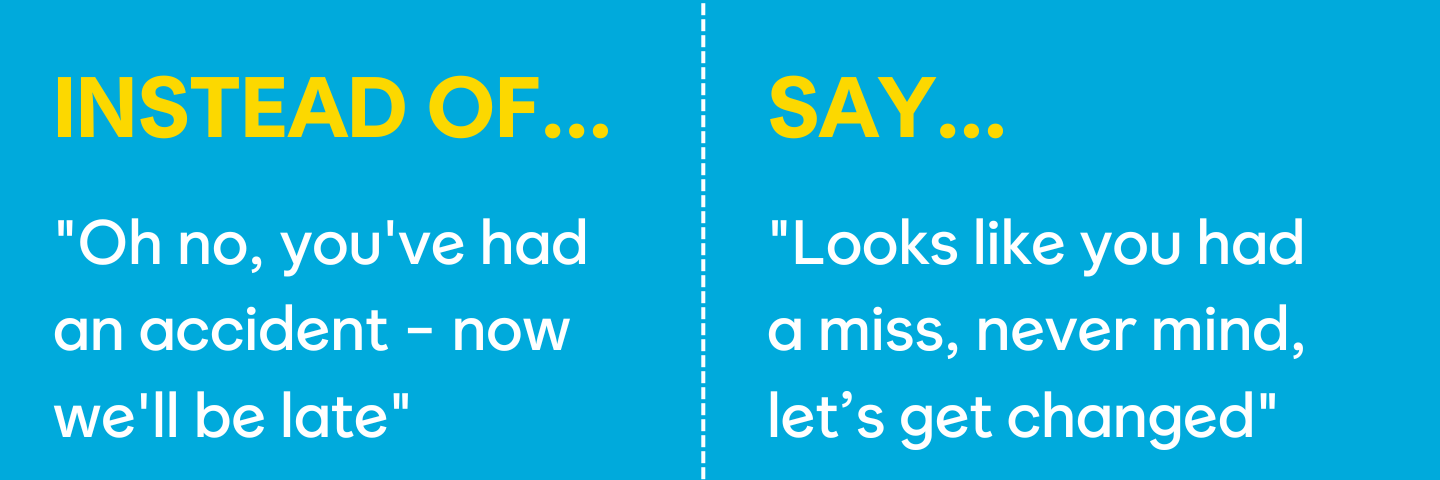How and what we say to our little ones about going to the toilet is an important part of teaching them healthy and independent bathroom habits.
That being said, it’s not always easy – from endless giggling at potty humour, through to more serious anxieties, we’ve collated some top tips on how to talk to your kids about all things toilet training.
Let’s break the toilet taboo and normalise toilet talk
We want everyone to feel comfortable having better bathroom conversations – why should there be taboo and shame attached with something all of us do so regularly?
Empowering your child from an early age to feel confident talking about their bathroom habits will:
- Help them learn hygiene independence faster
- Avoid feelings of shame and anxiety associated with toileting
- Form part of their general health awareness – sharing our toileting habits is a huge indicator of gut and other health conditions
Starting out – toilet training a toddler
When starting out, you want to actively encourage your child to start talking about going to the toilet so they’re armed with the language they need to understand how it all works.
A great place to start might be letting them watch you go to the toilet, and describing each step of the process in detail. This will start to role model the steps for them, make it seem less daunting, and teach them the words they need to use when they start expressing their toileting needs.
Is slang and potty talk OK?
There’s mixed opinion on whether slang (like weewee, butt), or the anatomically correct language (urine, bowel) is better to teach your child.
On one hand, anatomically correct language will help teach the child about their bodily functions, and the words may be less associated with shame or toilet humour.
But, these words are often longer and harder for young children to pick up and use, so middle of the road slang (like wee over weewee) might be the best place to start so that your child can use the words themselves.
Ultimately, the precise words you use aren’t hugely important as long as they feel comfortable and clear to you and your child.
A lot of children do start picking up toilet humour, which is absolutely normal, but there may be certain situations (Granny coming for tea perhaps) where you want to downplay the potty jokes.
Firstly remember that you may have started it – kids are absolute sponges, so be aware that if you start the jokes and slang, they may catch on. You also don’t want to attach shame to toilet talk, so if you’re trying to put some boundaries on where the conversations happen, respond calmly. Explain that toilet words are for the bathroom, not the dinner table for example.
Cut the power struggle with active language
Every child is different when learning to potty train, but for some it can evolve into a real power struggle or even the child withholding poo.
We want the child to ultimately be independent in their toileting, but in the early days it can actually help to not give them too much choice – we’ve all been in the situation where the daily ‘do you want to try for the toilet before we leave’ is routinely met with no.
Use positive, active language like ‘It’s time to go to the toilet’ rather than ‘do you want to try’ to make sure you are still in control of the situation, as well as normalising that it’s just a part of the regular routine.
How to avoid shame
It’s so important to teach your children that going to the toilet is normal, and is nothing to feel scared or shameful about. Even when accidents happen (whilst it might be tempting to groan over a carpet stain), it’s important to react neutrally and factually, and avoid language with shameful connotations.
Here are the top 4 things to avoid:
1. Negatively emotive responses, raised voices, and facial expressions – especially when accidents happen or things don’t go to plan
2. Negative words e.g. ‘dirty’ ‘stinky’ ‘gross’
3. The word accident – use ‘miss; or just state the facts e.g. ‘ah you’ve wet your pants, let’s clean that up’ ‘Looks like you had a miss, never mind, let’s get changed’.
4. Phrases that attach blame or single them out e.g. ‘we’re going to be late now because of you’
How to give praise
It may sound obvious, but giving praise and feedback is a great way to encourage and positively reinforce good toilet behaviours.
Try to spend some time on giving praise even when you’re in a rush, and give specific feedback that will help them learn. For example instead of just saying “well done”, say “ I am so proud that you spent your time cleaning yourself properly with toilet roll, well done”.
It can help to pair your words of praise with something tangible like a reward chart – you can download a free one here.
Talking to a child with toilet anxiety/regression
It’s natural for some children to develop anxiety or toilet training regression, which can make talking about the issues feel more daunting.
All of the tips above still apply for talking to a more nervous child – remaining calm, and talking about toileting as just a natural part of the routine with no shame attached will help normalise things over time.
If you do want to talk to your child directly about their toilet anxieties, pick a time when they’re feeling relaxed rather than in the moment – you don’t want to add any pressure to an already nervous situation.
It can also help to avoid asking too many questions or pushing too deep for answers on why they might be feeling certain ways. You want to avoid adding extra scrutiny to the situation, and it’s likely your child may not have the language skills to give you the answers you want.
Finally, if asking to go to the toilet in public or when out and about is a particular source of anxiety, you could develop a secret word or sign with your little one so they can express their want to go to the toilet in a more comfortable way for them. You might want to share this word with other caregivers/schools and nurseries too.
Get more support










